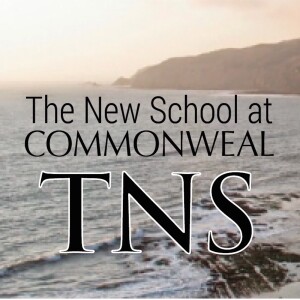
Exploring Nature, Culture and Inner Life
Education

2024:01.25 - Elizabeth Sawin & Beverley Thorpe - Multisolving for Climate, Chemicals & Health
 2024-02-07
2024-02-07
Download
Right click and do "save link as"
~Co-presented with Commonweal’s Collaborative for Health and the Environment~
We’re now in the dangerous, uncharted territory climate scientists have been warning about for decades. Meanwhile, biologists and toxicologists are sounding the alarm about surpassing the “planetary boundary” for chemical pollution, beyond which both ecosystems and our health are endangered. We know climate change and chemical pollution are related in ways that can accelerate both crises, but does their interlinked nature also offer opportunities? Join Host Kristin Schafer with biologist and systems thinker Dr. Elizabeth Sawin and chemicals expert and clean production advocate Beverley Thorpe as they explore opportunities to prioritize solutions that concurrently address climate change and the global crisis of chemical contamination — while also improving public health, equity and economic vitality.
Multisolving Institute a think-do tank that helps people implement solutions that protect the climate while improving, equity, health, biodiversity, economic vitality, and well-being. Beth writes and speaks about multisolving, climate change, and leadership in complex systems for both national and international audiences. Her work has been published widely, including in Non-Profit Quarterly, The Stanford Social Innovation Review, U.S. News, The Daily Climate, and System Dynamics Review. In 2010, Beth co-founded Climate Interactive, which she co-directed until 2021. Since 2014, Beth has participated in the Council on the Uncertain Human Future, a continuing dialogue on issues of climate change and sustainability. She is a biologist with a PhD from MIT who has been analyzing complex systems related to climate change for 25 years. Beth trained in system dynamics and sustainability with Donella Meadows and worked at Sustainability Institute, the research institute founded by Meadows, for 13 years. Beth has two adult daughters and lives in rural Vermont where she and her husband grow as much of their own food as they can manage.
Beverley Thorpe
Beverley is Co-Founder of Clean Production Action, and has researched and promoted clean production strategies to advance a non-toxic economy internationally since 1986. She was the first clean production technical expert for Greenpeace International on chemical and waste issues. Bev’s work on alternatives to PVC, organohalogens and hazardous waste incineration helped drive momentum for safer substitution practices in company practices. As the NGO representative in the first United Nations Environment Programme for Cleaner Production, she promoted the value of public participation in industrial policies. Bev received her degree in Geography from Leicester University, UK and is an annual lecturer at Lund University in Sweden on chemicals policy and corporate practices. She is a past Director of Greenpeace International and a founding board member of the Story of Stuff in the US. She lives in Toronto, Canada.
Host Kristin Shafer
Kristin is director of Commonweal’s Collaborative for Health and the Environment, and three decades of experience in the field of environmental health and justice. After working as a Communications Specialist at EPA and with World Resources Institute in Washington, DC, she moved back to Northern California where she held various roles—including executive director—over her 25-year tenure at Pesticide Action Network (PAN) North America. Kristin holds a Masters in Social Change and Development from Johns Hopkins School of Advanced International Studies. She lives with her husband in downtown San Jose where she loves to bike ride and garden, and currently serves as board co-chair for the community-building urban farm, Veggielution.
Find out more about The New School at Commonweal on our website: tns.commonweal.org. And like/follow our Soundcloud channel for more great podcasts.
view more
More Episodes
0123456789101112131415171819
Create your
podcast in
minutes
- Full-featured podcast site
- Unlimited storage and bandwidth
- Comprehensive podcast stats
- Distribute to Apple Podcasts, Spotify, and more
- Make money with your podcast
It is Free
- Privacy Policy
- Cookie Policy
- Terms of Use
- Consent Preferences
- Copyright © 2015-2024 Podbean.com





